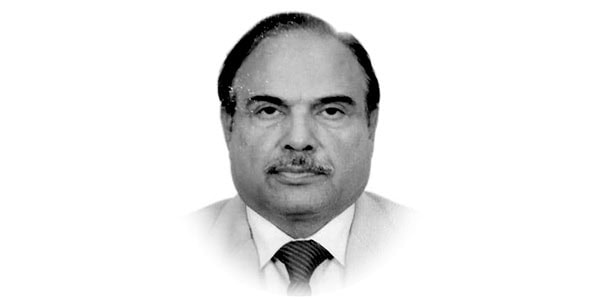ECP defection judgment is per spirit of Article 63A
THE unanimous decision by the Election Commission of Pakistan has become all the more important following the Supreme Court interpretation of Article 63A, holding that the vote of dissident MPAs cannot be counted although its opinion of the honourable majority judges not binding, in principle it prerogative of Parliament to amend the Article 63A with two third’s majority.
The de-seated members had a key role to play in election of Hamza Shehbaz who has now lost majority support in the House.
In the elections for the Chief Minister slot on April 16, 2022 PML-N leader Hamza Shehbaz got 197 votes as opposed to the required number if 186 in the House of 371.
The strength of his supporters in the House has apparently shrunk to 172, meaning 14 short if the magic number is 186.
Observing that declarations seeking disqualification vary on a case to case basis, it noted that act of defection has been seriously viewed and denounced by the Supreme Court in a number of pronouncements and reported in opinion order.
Beleaguered Punjab Chief Minister Hamza Shehbaz is facing electoral crisis after the Election Commission of Pakistan de-seated 25 dissident MPAs of PTI who voted for him in the CM elections, while the opposition PTI and PML-Q alliance sees a runoff election in the coming days claiming Hamza can’t hold the office for long.
It’s interested that alliance between PTI and PML-Q is symbolic not covered under section 215 of Election Act 2017.
The allocation of five vacant reserved seats is being allocated to PTI under Article 224 of the Constitution, an important role if the runoff election is held of the 25 de-seated PTI MPAs, five were elected on reserved seats.
As per Article 224, clause 6, when a seat reserved for women or Non-Muslims in the National Assembly or a Provincial Assembly falls vacant, on account of death, resignation or disqualification of a member, it shall be filled by the next person in order of precedence from the party list of the candidates to be submitted to the Election Commission of Pakistan by the political party whose member has vacated such seat.
On the other hand the Lahore High Court issued notice to Hamza Shehbaz, Chief Minister of Punjab and other respondents on petition against his election and also asked the lawyers of the PTI and PML-Q to assist on retrospective effect of the Supreme Court opinion on the votes of defections.
The opinion oriented judgment is monumental and will significantly influence Pakistan’s politics for years to come.
After nearly two months of wait, the Supreme Court has dilated on Article 63A of the Constitution to provide its opinion on how the votes of legislators who are deemed to have acted against their party directives should be treated.
Though a 3/2 decision, the court has held that any legislator who defies their party voting instructions on the four instances highlighted in Article 63A ought not to have their vote counted at all.
It’s my considered opinion that now parliament should make amendment in the Article 63A in order to protect the norms of democracy as the court opinion has significant repercussions for the future as well as the present.
Two judgments have re-written the rules of Pakistan’s parliamentary democracy. First, the Supreme Court ruled that voting by Lawmakers against party directions in the four scenarios laid down in Article 63A automatically nullifies their vote.
Then, the Election Commission of Pakistan ruled that the 25 PTI MPAs of PTI who voted in favour of PML-N’s Hamza Shehbaz as Punjab Chief Minister would be de-seated for defying their party even if the technical prerequisites for their dismissal had not been met.
A dissenting vote, therefore, did not only become worthless, it also became a sure fire way of losing one seat in the legislator use.
The beauty of Pakistan’s legislative system is that it requires wider consensus when legislating on constitutional matters.
Revisiting the defection laws with the collective wisdom of at least two third’s of Parliament would have yielded a more nuanced updating of Article 63A.
However, the ECP’s decision seems to have deemed these measures inconsequential, thus denying defectors any protection from unfair disqualification.
It’s astonishing that Article 17 had been inserted in the Constitution to identify the circumstances in which lawmakers would be deemed to have formally defected from their party and to lay out the procedure for having them ejected from their seat.
Before the Supreme Court applied its own reading of Article 17 to identify the spirit of Article 63A, the law did not indicate that a defector vote would not be counted, thus allowing individuals whose principles discouraged them from following the party line to exercise their right to participate in matters of national importance.
—The writer is former Secretary Election Commission of Pakistan and currently Chairman National Democratic Foundation.










